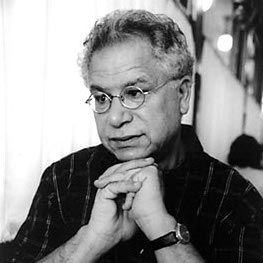
Mourid Barghouti was born in the Palestinian village of Deir Ghassanah on the outskirts of the occupied West Bank city of Ramallah. In 1963, he moved to Cairo to study a degree in English Literature. However, after studying, he was not able to return to his homeland and was subsequently exiled for 30 years due to the Israeli government.
Barghouti’s poetry is heavily devoted to the injustices committed by the Israeli government upon the Palestinian people. Focussing heavily on Palestinian displacement, he sought to bring light to the often painful lived experience of Palestinians.
Recently, he voiced his opposition to the US-backed Arab normalisation deals with Israel. Although he never directly associated with any political party, he was a longstanding member of the Palestinian Liberation Organization.
In response to Barghouti’s death, the Palestinian Minister of Culture Atef Abu Saif said that Palestinians and the Arab world have “lost a symbol of national struggle and creativity”.
Midnight
My grandfather, still harbouring the illusion
that all is well with the world,
fills his countryside pipe
for the last time
before the advent of the helmets and bulldozers.
On the bulldozer’s teeth
my grandfather’s cloak gets hooked.
The bulldozer retreats a few yards,
empties its load,
comes back to fill its huge fork
and has never had enough.
Twenty times, the bulldozer
comes and goes,
my grandfather’s cloak still hooked on it.
After the dust and smoke
had cleared from the house that had been standing there
and as I was staring at the new emptiness
I saw my grandfather
wearing his cloak,
wearing the very same cloak,
not one that was similar
but the very same.
He hugged me and maintained a silent gaze
as if his look
ordained the rubble to become a house,
restored the curtains to the windows,
brought my grandmother back to her armchair,
and retrieved her coloured pills,
put back the sheets on the bed,
the lights on the ceiling,
the pictures on the walls,
as if his look brought the handles back to the doors
and the balconies to the stars,
as if it made us resume our dinner,
as if the world had not collapsed,
as if heaven had ears and eyes.
He went on staring at the emptiness.
I said:
What shall we do after the soldiers leave?
What will he do after the soldiers leave?
He slowly clenched his fist
recapturing a boxer’s resolve in his right hand,
his coarse bronze hand,
the hand which had tamed the thorny slope,
the hand which holds his hoe lightly
and with ease like prayer,
his hand which can split a tree stump with a single blow,
his hand open for forgiveness,
his hand closed on sweets to surprise his grandchildren,
his hand amputated
years ago.
Mourid Barghouti



